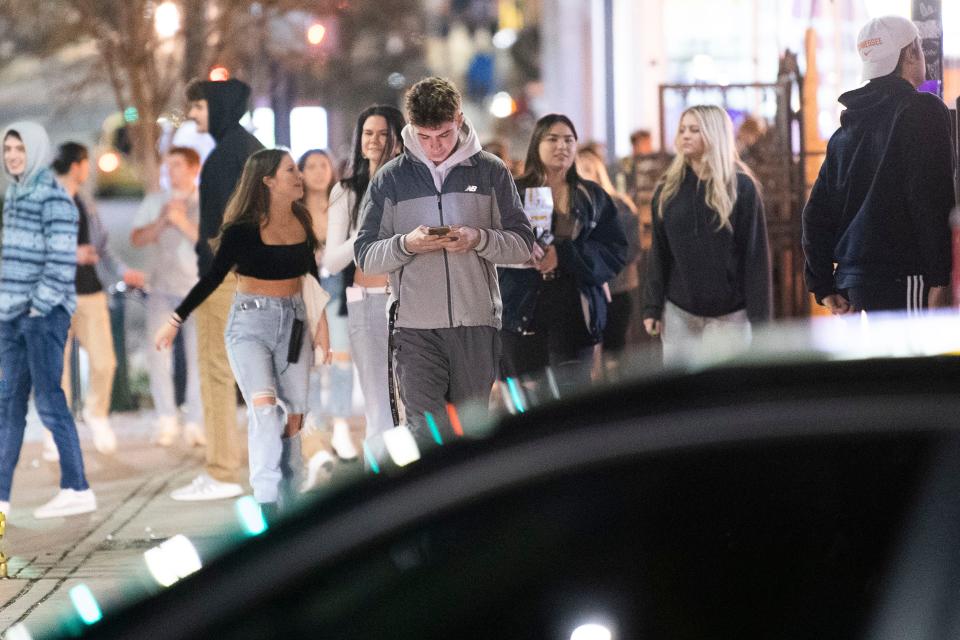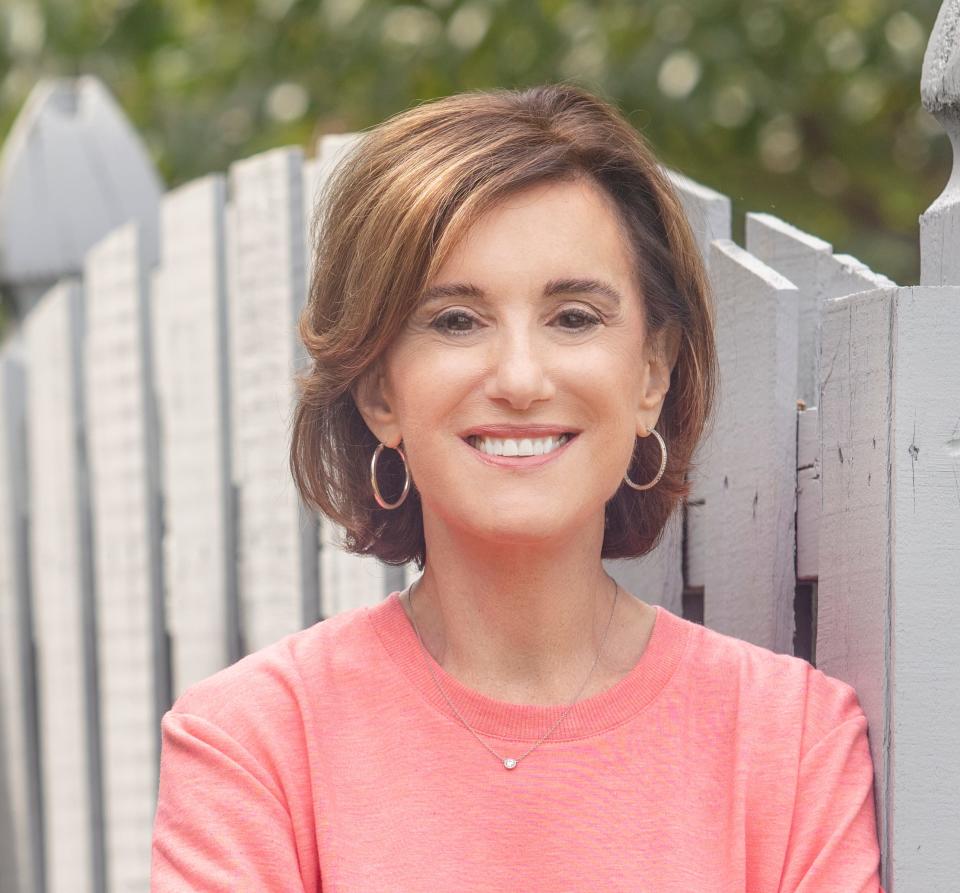Let's challenge the belief that drinking in college is 'normal' | Opinion
Like 22 million other households, my husband and I watched the College Football Playoff National Championship. At halftime, it appeared Alabama would take the game, which made us sad, because Georgia was the underdog and when we have no dog in the fight, we go for the underdog. The commentators had prognosticated that Alabama would win even before the game started, and they were in the lead at halftime, so I went to bed.
The next morning, I got up and checked the scores. To my surprise, Georgia had in fact won, with a stunning comeback fueled by its walk-on quarterback-turned-national champion, Stetson Bennett. Bennett did something else the morning I checked the scores, which I missed. According to press articles, he was interviewed on "Good Morning America" after getting barely any sleep, and was either drunk or tipsy, depending upon which article you read. One headline read: “Stetson Bennett’s drunk ‘Good Morning America’ interview was his greatest achievement.”
Being drunk on television is your greatest achievement? Right now, Bennett is bullet proof, so he can weather headlines like that and will still be revered for his accomplishments in the big game. And he should be, for that incredible comeback win. It’s showing up drunk on television that worries me. I can hear you saying, “Come on! He just led his team to the National Championship!” And you might also say, “He’s in college! Everyone drinks in college!”

College students in recovery communities
Is it "normal" to drink in college? Most of us would probably say yes. Yet I spend time with college students in recovery communities (CRCs) all over the country who are abstaining from alcohol and attending college sober. I’m collecting their stories for a book I’m researching and writing. I’m also in long-term recovery myself. CRCs are usually college- or university-sponsored programs that provide a supportive environment for college students in recovery from drug and alcohol abuse.

THE LATEST NEWS RIGHT AT YOUR FINGERTIPS
Get the latest local news, sports scores and more directly on your phone. Download the free Knox News mobile app.
Hear more Tennessee voices: Get the weekly opinion newsletter for insightful and thought-provoking columns.
There are many reasons that we need to be concerned about this age group and their substance use. I recently spoke with a friend who told me that she just placed her 19-year-old son in rehab again, this time likely for a year. In the past year, two of his friends had overdosed on alcohol and drugs and died.

This population is particularly vulnerable because the closer they get to legal drinking age, the more likely they are to develop an alcohol use disorder. According to the Substance Abuse and Mental Health Services Administration, 104,000 18-year-old college students in 2019 met the criteria for an AUD. But among students age 21, that number had more than doubled, to 231,000.
The stories of how these students got there — either to college or sobriety, or both — are often harrowing. One young woman tried to kill herself many times, went to multiple rehabs and became homeless, but with fierce tough love from her parents and her own dogged determination, she found her way to college. Today, she’s over two years sober. The students I’ve met are some of the most inspiring people I’ve ever known. I’m in awe of them.
Many come from “normal” families, and they often drank “normally” or socially in high school. Some are stories of kids lucky to be alive to make it to college, like the young woman I cited above. They are stories of remarkable resilience and of remarkably resilient parents, too.

Your state. Your stories. Support more reporting like this.
A subscription gives you unlimited access to stories across Tennessee that make a difference in your life and the lives of those around you. Click here to become a subscriber.
The struggle isn't limited to young people
It isn’t just young adults who struggle with what’s “normal” or abnormal drinking. Prior to entering recovery, I held executive positions, including being chief operating officer for a multi-billion-dollar company, and sat on corporate boards. I also have a happy 30-year-plus marriage. I had no DUIs and never went to jail or prison. I only realized that my drinking was a problem when it didn’t fix what I felt — emptiness so deep, it almost cratered me.
We know so much more about addiction today than we did even a decade ago. That’s exciting for our young adults. But it seems we still don’t know what "normal" means, at least when it comes to drinking.
Susan Packard is an entrepreneur who, along with many talented people, created channels like HGTV, Food Network and CNBC. She’s written two books, the most recent of which is “Fully Human: Three Steps to Grow Your Emotional Fitness for Work, Leadership and Life.” She is now working on her third.
This article originally appeared on Knoxville News Sentinel: Let's challenge the belief that drinking in college is 'normal'

